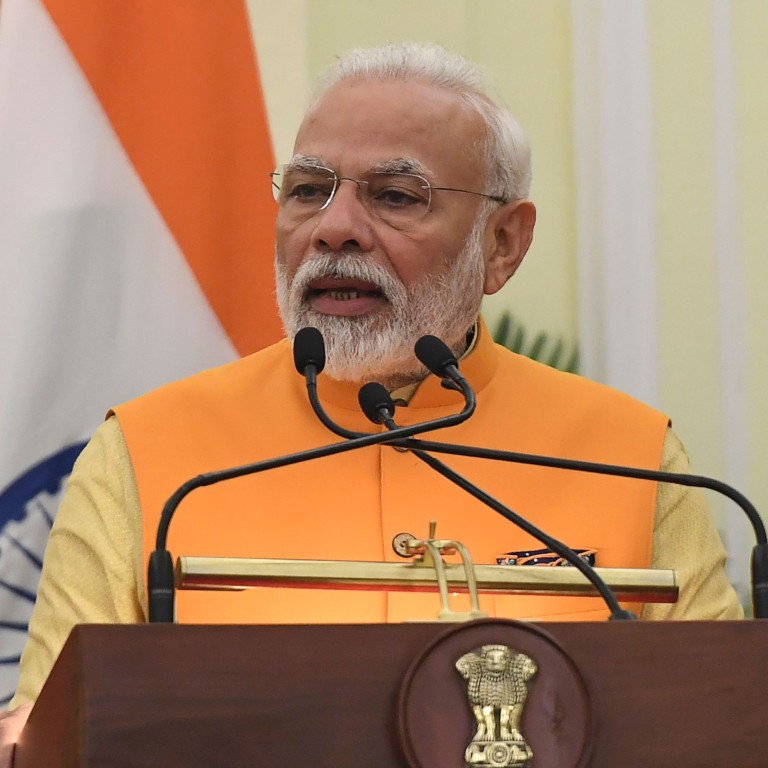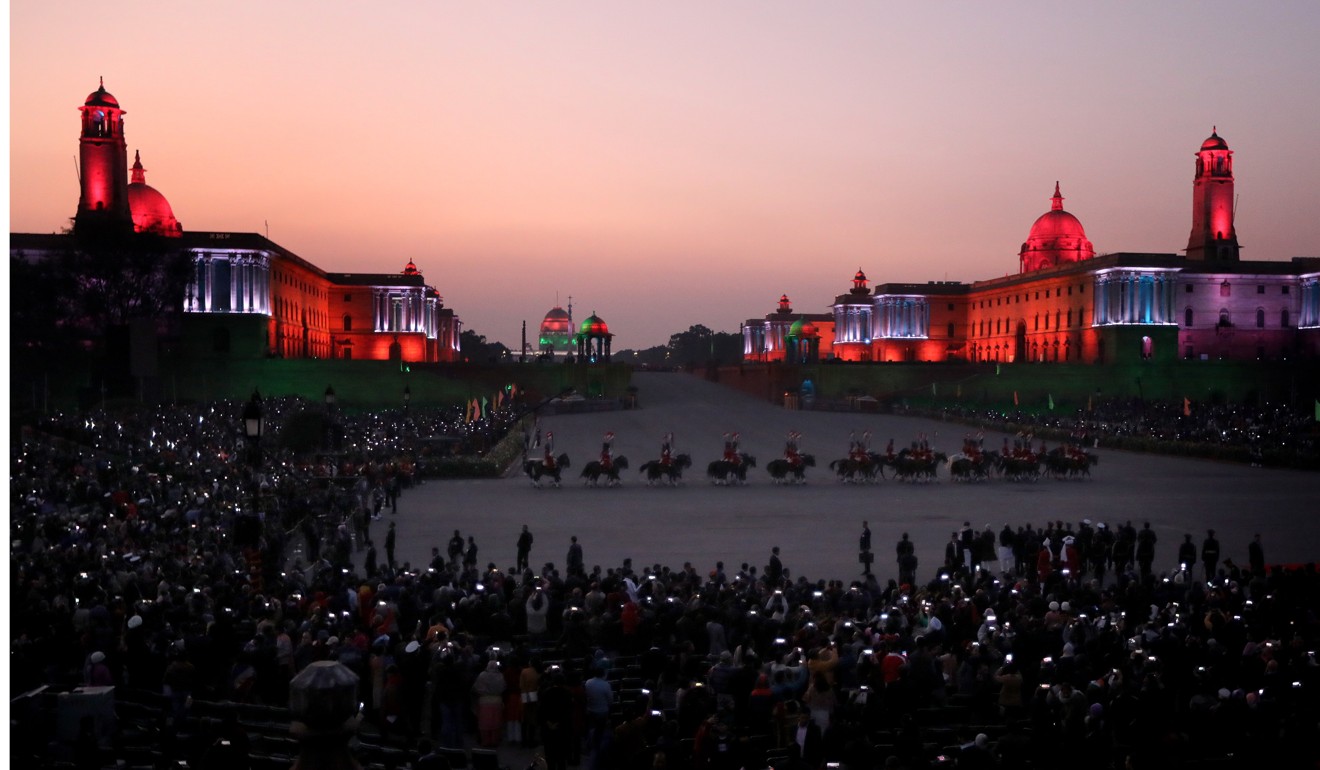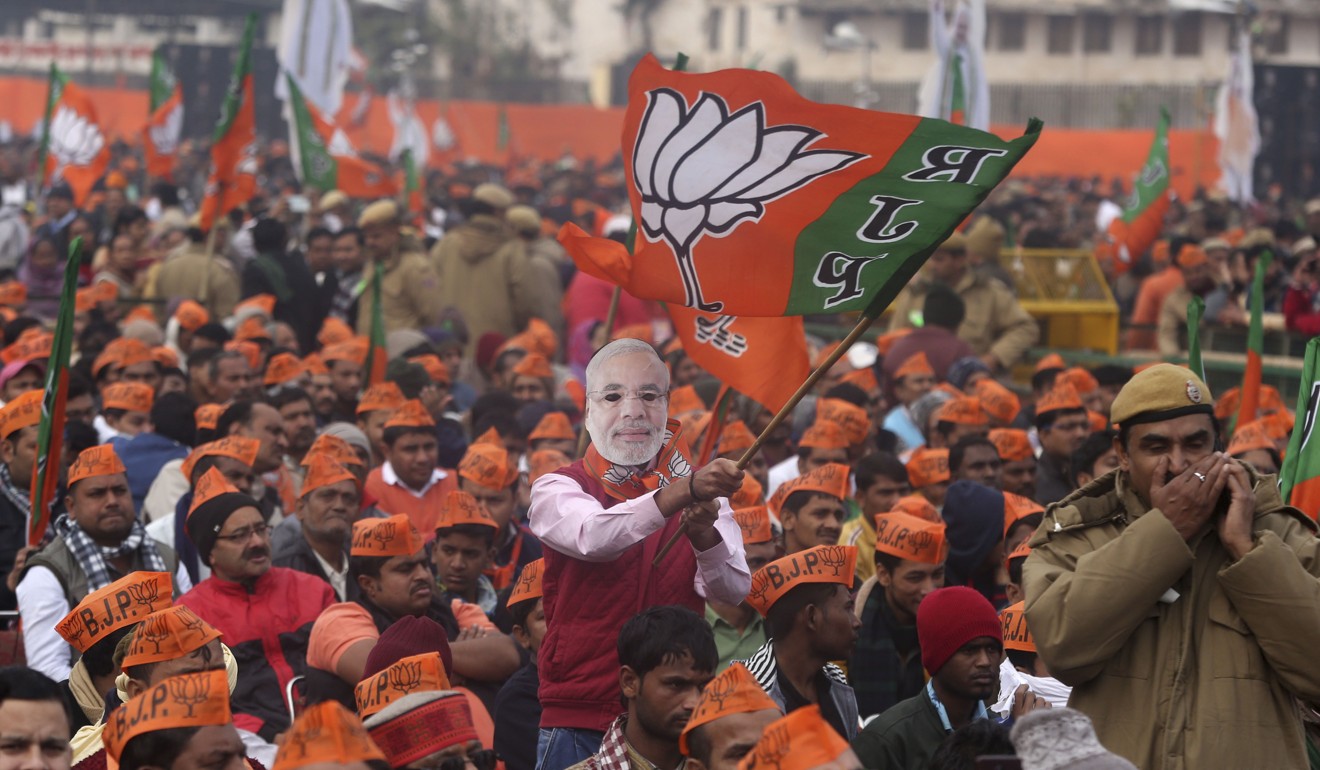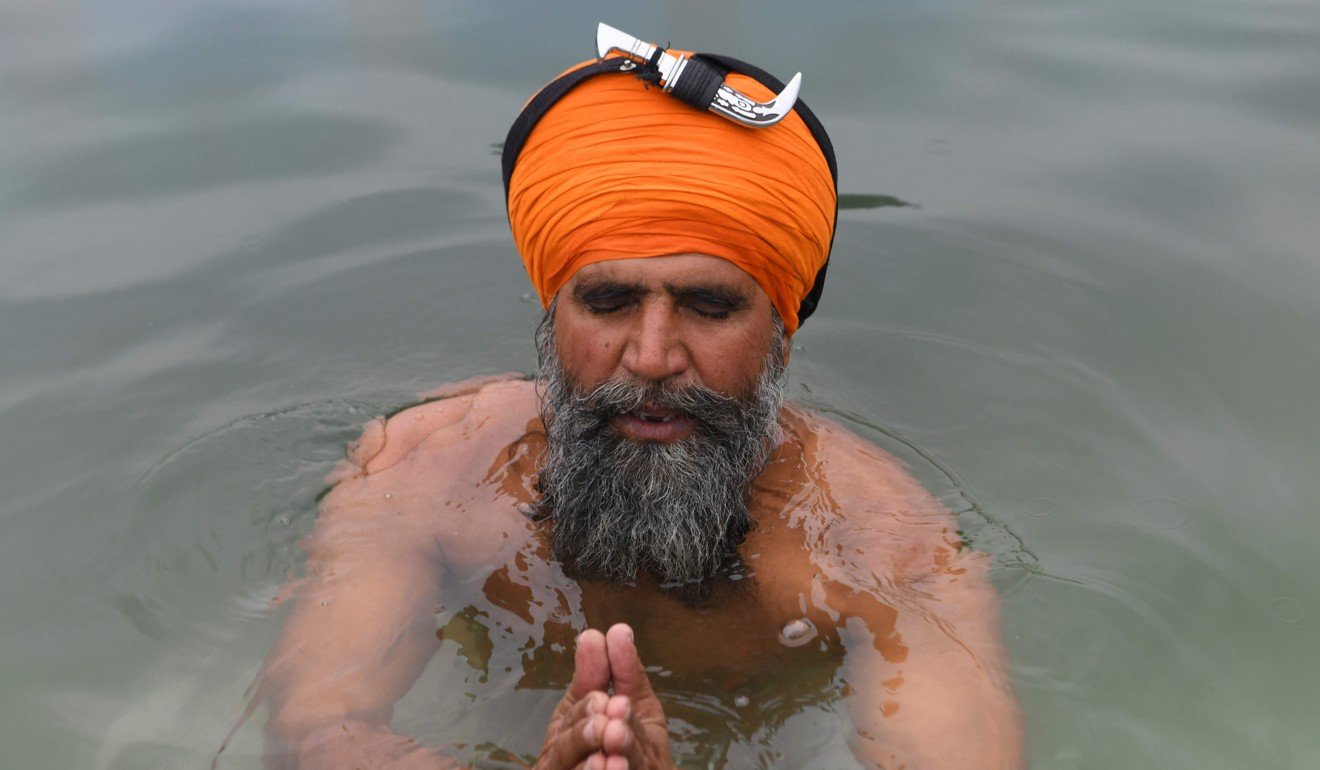
Marginalised under Modi: how India’s minorities are starting to stand together
- Attacks on minority Muslims, Christians, Sikhs and Buddhists have increased since Narendra Modi’s BJP government came to power
- But minority groups are now joining forces against Hindu nationalism, pointing out that the Constitution is secular
“Some sections of the minorities in the country are feeling aggrieved under the Bharatiya Janata Party (BJP) government,” said Satnam Singh Ahluwalia, general secretary of the United Interfaith Foundation – India, which organised the human chain. “The Constitution guarantees equality and liberty to all and we want to ensure that nobody takes away this right.”
Muslims, Christians, Sikhs, Buddhists, Parsis and Jains are considered minorities in the predominantly Hindu country.

“The collective fear is, today they are targeting Muslims, tomorrow it will be some other community,” said Ahluwalia, a Sikh.
According to the National Human Rights Commission, 2,008 cases of harassment of minorities and lower-caste Dalits were registered between 2016 and 2019 across India.
About 200 million Muslims living in India, the country’s largest minority group, suspect that the implementation of CAA along with NRC would result in their systematic exodus from the country.

“If people of other religions fail to prove their nationality, they can still take refuge under CAA by claiming that they came from one of the three neighbouring countries and remain Indian citizens, but Muslims would not have that chance,” said Zafarul-Islam Khan, chairman of the Delhi Minorities Commission.
The BJP’s parent body, the Rashtriya Swayamsevak Sangh (RSS), considers Muslims as “invaders”. It was formed in 1925 with the aim of creating a Hindu state.
In his book, India After Gandhi, historian Ramachandra Guha wrote that former RSS chief M.S. Golwalkar had said non-Hindu people may stay in the country, “wholly subordinated to the Hindu nation”, claiming nothing, not even “citizen’s rights”.
India’s roughly 28 million Christians have experienced increased attacks on churches and priests, the disruption of prayer services and forceful conversion to Hinduism via “ghar-wapsi (homecoming)” by Hindu groups.
Non-governmental organisation Persecution Relief reported a 59.6 per cent rise in hate crimes against Christians from 2016 to 2019, with Uttar Pradesh, Tamil Nadu and Karnataka listed as the most hostile states.
“BJP has something very obstructive against us,” said Metropolitan Archbishop of Bangalore Peter Machado.
This is a secular country, how could you force one religion upon everyone?
Archbishop of Kolkata Thomas D’Souza said the problem is the lack of respect for Constitutional values by the government.
“Silence of the government on these attacks gives a wrong signal,” he said. “The silence makes attackers more confident and instils a sense of fear among people.”
After being re-elected, Modi pledged “Sabka Saath, Sabka Vikas and Sabka Vishwas (togetherness of all, development for all and trust of all)”, but historian Mridula Mukherjee observed that this was just a slogan, and the pledge does not tie in with the party’s goal of a Hindu state. “Remember, creating an exclusive Hindu state is their reason for existence,” she said.
Mukherjee also questioned how minorities from other countries who can be granted citizenship under CAA could feel safe when India’s own minorities feel threatened.
India’s citizenship law protests deepen Hindu America’s Modi divide
Christians and Muslims are not the only ones who feel marginalised under Modi. About 24 million Sikhs are also wary of the assimilationist agenda of the BJP and the RSS.
Sikhs oppose the RSS-run Rashtriya Sikh Sangat that aims to unite Sikhs with Hindus. And the idea of a “Hindu state” does not sit well with Sikh leaders.
Sirsa won an assembly seat in Delhi in 2017 as a candidate of the BJP’s ally, Shiromani Akali Dal. He campaigned for BJP in the recent Delhi assembly elections, but does not support the concept of a Hindu state.

Many Sikhs in Punjab, the northern Indian state bordering Pakistan, which once witnessed a bloody separatist Khalistani movement, feel their loyalty is always being questioned.
Garment trader Harjeet Singh of Gurdaspur in Punjab, said there is a perception that the Khalistani movement is revived. “Whenever there is tension on the border, the government looks at us with suspicion,” Singh lamented.
The loyalty of Sikhs should remain unquestioned because the Sikh Regiment is the most highly decorated regiment of the Indian Army in terms of awards for gallantry and good service medals, Singh said.
But Mukherjee pointed out the problem is that all those who are not Hindus are “treated as fifth-columnists by the BJP”.

Minority communities are now coming together to fight the BJP’s fascism. Recently, a group of Sikh farmers stood in solidarity with Delhi’s Muslim-dominated Shaheen Bagh in a protest against the CAA. Historically, Sikhs and Muslims were at loggerheads with each other as the Sikh Guru Tegh Bahadur was executed under the orders of the Mughal Emperor Aurangzeb.
Panjab University political scientist Ashutosh Kumar said the Sikhs visiting Shaheen Bagh “indicates Sikhs too are against this Hindu majoritarianism of the BJP”.
Criticise Modi? Big business wouldn’t dare, says Indian billionaire
Hindu nationalists have also turned their attention to the country’s 8.4 million Buddhists, who they considered as “one of their own” because India is their holy land. “There have been several attacks on Dalit Neo-Buddhists in Maharashtra and Uttar Pradesh,” said Buddha Priya Mahathero, general secretary of Bharatiya Sangharaja Bhikkhu Mahasabha, a national body of Buddhist monks.
He said government officials often want Buddhist monks to say “nice” things about them at public forums. “But I tell them, why do they not do something positive so that we can praise them,” he said.
The question is, will Modi’s government listen?
